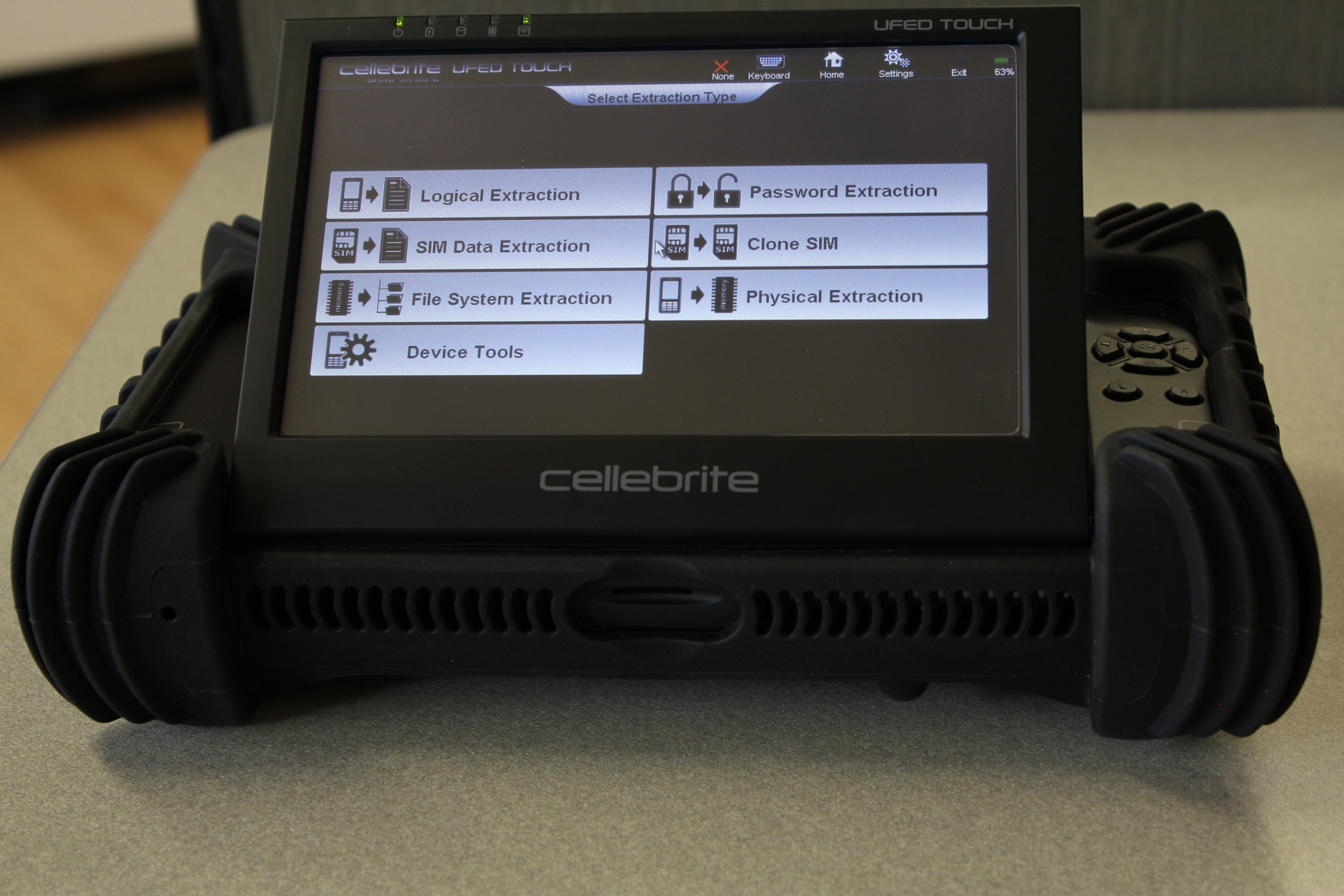Cellebrite Touch- A leading mobile device forensic tool used by experts
While the sports world anxiously awaits a final decision on the 211-game suspension of Yankees third baseman Alex Rodriguez, digital forensics experts continue to use their technological expertise to expose the high-profile cheating taking place throughout professional sports. This type of investigation is no longer the exclusive domain of organizations like Major League Baseball and Congress. A new generation of tech experts is taking tools traditionally used by national security agents to defend against cyber attacks, and using them to prosecute the boys of summer who have run afoul of anti-doping regulations.
How did we get here? Consider all we have learned over the past few months about the National Security Administration from the Edward Snowden case: It's clear that digital forensics is playing an ever-increasing role in government surveillance and criminal investigations. Digital forensics can be used to track not only where people are at any given time, but who they are talking to and exactly what is being said. While these methods have been successful at thwarting terrorist threats and convicting international criminals, the usefulness of information gathered from digital forensics can also be indispensable to professional athletic agencies intent on ferreting out dopers.
In order to prove Alex Rodriguez' connection to Biogenesis, the lab that supplied him with illegal performance-enhancing drugs, Major League Baseball needed the kind of evidence that can come only from a digital trail of phone calls, text messages and other incriminating items. Doping has become so sophisticated that even advanced laboratory testing is no longer reliable, so digital forensics has emerged as an investigative tool that is nearly indispensable. The onus remains on Major League Baseball to proactively investigate its players to level the playing field if it has any hope of restoring the public's faith in the sport.
How will the league fill this tall order? There are some who believe Major League Baseball should function more like a corporation and treat its players more like employees. This approach may include stricter social media policies and even electronic monitoring. Individuals concerned with personal privacy worry that measures like this may go too far. However the league decides to proceed, the role of digital forensics is here to stay. As the league tries to regain control and salvage the game's tarnished reputation, one thing is clear: reliable, highly trained digital forensics experts will be the human resource piece of the puzzle.
It takes a very specific skill set to perform digital forensics investigations, whether for government agencies or professional athletic associations. Evidence from players' phones and other mobile devices, as in the A-Rod case, may end up in the possession of a league's governing body or in a courthouse, where irrefutable proof is necessary to secure a conviction or determine punishment. When going up against the deep pockets of professional athletes, whose sponsorships and livelihoods are at stake, the evidence has to be overwhelming and beyond reproach. A player's use of illegal performance-enhancing drugs, in spite of other compelling evidence, may go completely unpunished in the absence of digital forensic evidence, but it must be collected and analyzed correctly. Exhausting protocols must be followed to maintain the integrity of this type of evidence. It also requires a professional with the knowledge and experience to know how to properly present digital evidence in the courtroom.
A single mistake in the way the digital forensic evidence is collected, analyzed or presented can undermine the entire case, so a ferocious attention to detail has to be there from the beginning of the investigation through every transfer of custody and right to the very end. In the case of Rodriguez and the dozen other players caught up in the Biogenesis investigation, they may have escaped punishment altogether had the digital evidence not been so compelling.
Whether it is Major League Baseball, the National Football League, or the cycling world's Lance Armstrong, entire brands are built, at least in part, on the presumption of a level playing field, and that natural ability combined with dedicated training and sacrifice are what set winners apart in honest competition. Having even a single player use -- and lie about using -- illegal substances with no repercussions will continue to undermine the appeal of professional athletics. Though it is increasingly commonplace, cheating can never become acceptable. It is imperative that cases like those involving Rodriguez and Major League Baseball are pursued and handled correctly. Digital forensics, performed correctly by highly educated, experienced professionals, gives us an opportunity to mitigate the damage that's already been done. Digital forensics experts have the power to make players think twice by showing them there is basically no way to hide their cheating.
Fans want to know when athletes have engaged in illegal activity to gain a competitive edge. We want to be assured that some measure of fairness still exists in sports and that our love of the game will not be forever tainted by the dishonesty of a few cheaters. In addition, the athletes who do not resort to doping want -- and deserve -- a level playing field where the best can really succeed. When digital forensics is applied by experienced, trained professionals, it offers the hope of restoring some of the fairness and wholesomeness that have been lost in professional sports.
Jonathan Rajewski is the Director of Senator Patrick Leahy Center for Digital Investigation and Assistant Professor of Computer & Digital Forensics at Champlain College in Burlington, Vermont, a private institution that offers bachelor's and master's degrees in professionally-focused programs balanced by an interdisciplinary core curriculum.
